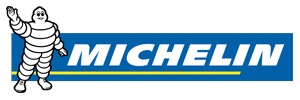As the miles add up, you want to ensure your car is reliable & safe to last you as long as possible. While achieving this can be daunting, it is not impossible! Your car is one of the most significant investments, therefore, you want to ensure you prolong its lifespan.
Perhaps, one crucial aspect you want to ensure remains in top-notch condition is the car’s engine. A car’s engine can quickly wear off if you overspeed. And if you want to avoid damaging the engine’s components, slow down speed racers! All it takes to keep your engine in the right state is abiding to speed limits whenever you go for a ride. Whether it’s a new or used car, there are other ways to prolong it's life. See below to identify other ways to get the most out of your investment.
Perhaps, one crucial aspect you want to ensure remains in top-notch condition is the car’s engine. A car’s engine can quickly wear off if you overspeed. And if you want to avoid damaging the engine’s components, slow down speed racers! All it takes to keep your engine in the right state is abiding to speed limits whenever you go for a ride. Whether it’s a new or used car, there are other ways to prolong it's life. See below to identify other ways to get the most out of your investment.
1. Get the Right Insurance
If you got caught driving an uninsured car, you are likely to face severe legal implications. Perhaps, this is one of the reasons why most people will purchase car insurance. There are other benefits of getting car insurance, such as covering any damages to the car in case of an accident.
Therefore, you want to ensure you research the best cheap car insurance to cover your car against any damages. This can significantly prolong your car’s lifespan as any damages will get repaired immediately if you lack enough money to cover the expenses.
Therefore, you want to ensure you research the best cheap car insurance to cover your car against any damages. This can significantly prolong your car’s lifespan as any damages will get repaired immediately if you lack enough money to cover the expenses.
2. Maintenance and Repair
You want to stay on top of maintaining and repairing your car now and then. Regular maintenance of your car is absolutely the most vital step that can effectively extend its life. Ensure you schedule maintenance with your mechanic, who can check the engine to change the oil, coolant, and fluids for efficient operation.
At all costs, ensure you avoid putting off or postponing car repair as this can elevate trivial damages. Check for any damages that need immediate repairs, such as a leaking water pump, squealing brakes, or any other strange noise. Get your car inspected and repaired to avoid more costly repairs.
At all costs, ensure you avoid putting off or postponing car repair as this can elevate trivial damages. Check for any damages that need immediate repairs, such as a leaking water pump, squealing brakes, or any other strange noise. Get your car inspected and repaired to avoid more costly repairs.
3. Keep it Clean and Store in the Garage
Another unique way to extend your car’s life is by keeping it clean and storing it in the garage if possible. Besides, keeping your car clean can help increase its resale value in the future. Especially during winter, you want to ensure you regularly clean your car as road salt can easily cause rust damaging your car.
If you have been parking your car outside due to a congested garage, it is time to reconsider this. Clear out your garage and make enough room for your car! Storing your car in a garage can protect it from harsh weather and other elements that can damage its paint. Also, don’t forget to wax it to avoid dust buildups.
If you have been parking your car outside due to a congested garage, it is time to reconsider this. Clear out your garage and make enough room for your car! Storing your car in a garage can protect it from harsh weather and other elements that can damage its paint. Also, don’t forget to wax it to avoid dust buildups.
4. Don’t Forget About Your Tires
Along with driving carefully, don’t forget to check up on your tires. Make it a habit to rotate and check the pressure of your tires regularly. This is a surefire way to boost the car’s fuel efficiency and safety.
The above tips are not only simple but are guaranteed to improve your car’s lifespan. Adhere to them, and you will be amazed by the results!
Originally on: https://holrmagazine.com/4-effective-tips-for-prolonging-your-cars-lifespan/ found on ArticleCity.com
Originally on: https://holrmagazine.com/4-effective-tips-for-prolonging-your-cars-lifespan/ found on ArticleCity.com





